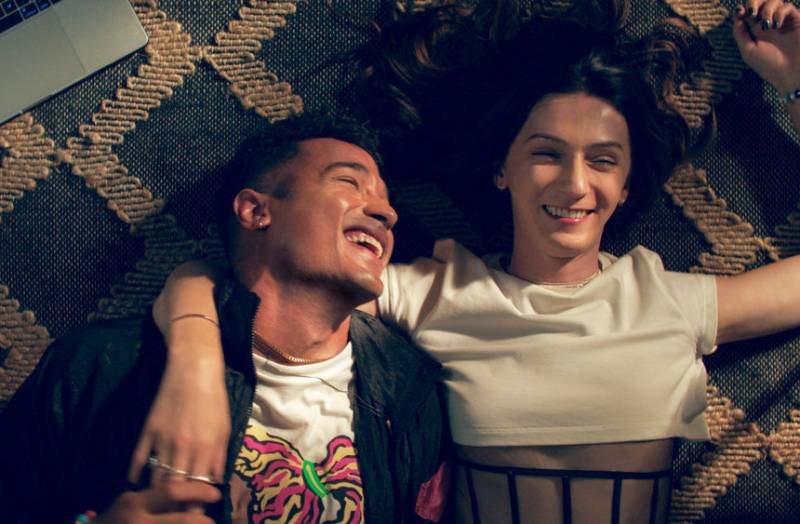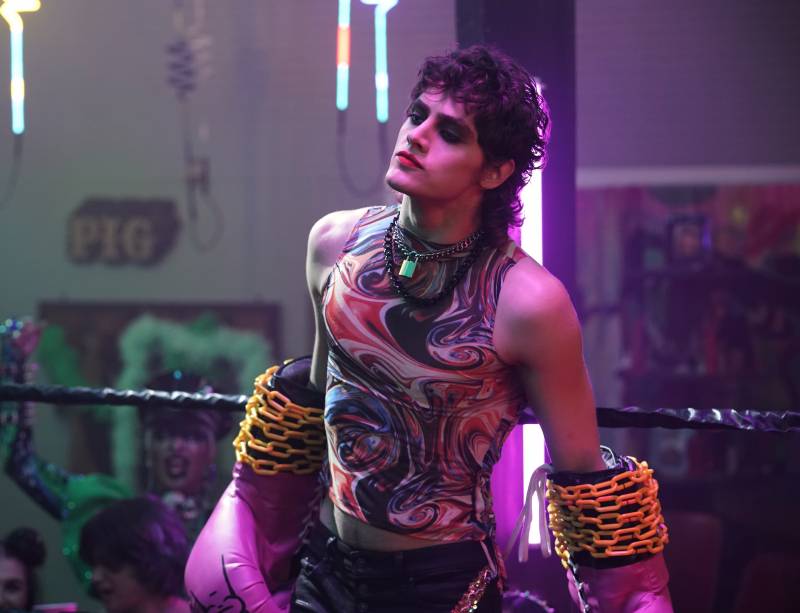What’s new, besides the series’ matter-of-fact diversity, is how much the show’s creators have clearly thought about depicting its range of characters and situations, and giving them real reasons to meaningfully co-exist within the same social circle. The queer community’s tendency to build and police strict silos based on race, age, body type, gender, income and disability was not something the old homogenous Queer as Folk series felt they needed to address, and largely didn’t.
But the new Queer as Folk eagerly embraces the challenge of creating a diverse network of characters not merely for the sake of doing so, but as a means to let them meaningfully interact and delineate themselves, to variously clash and come together until they emerge as fuller, more rounded people in the eyes of the viewer.
Some relationships are simple enough to diagram. Brodie (Devin Way) is a young hot gay man who returns to New Orleans after dropping out of med school, to the dismay of his adoptive parents, played by Ed Begley Jr. and, because the universe is beneficent, Kim Cattrall. Brodie is best friends with Ruthie (Jesse James Keitel), a trans woman who’s married to Shar (CG), a non-binary person who’s pregnant with twins. In the pilot, Brodie selfishly urges Ruthie to join him for a night out, which she does, selfishly. (You perhaps begin to detect a theme, here.)
There’s also Noah (Johnny Sibily), Brodie’s ex, who’s hiding the fact that he’s been hooking up with Daddius (Chris Renfro) for reasons that soon become clear. There’s Mingus (Fin Argus), one of Ruthie’s high school students who’s taking their first steps into embracing drag. And there’s Julian (Ryan O’Connell), Brodie’s sardonically nerdy younger brother who was born with cerebral palsy.
Had the series contented itself with this clutch of characters, it could have churned through soapy plot turns—betrayals, breakups, revelations, etc.—in the desultory way the old QaFs did.


9(MDAxOTAwOTE4MDEyMTkxMDAzNjczZDljZA004))

